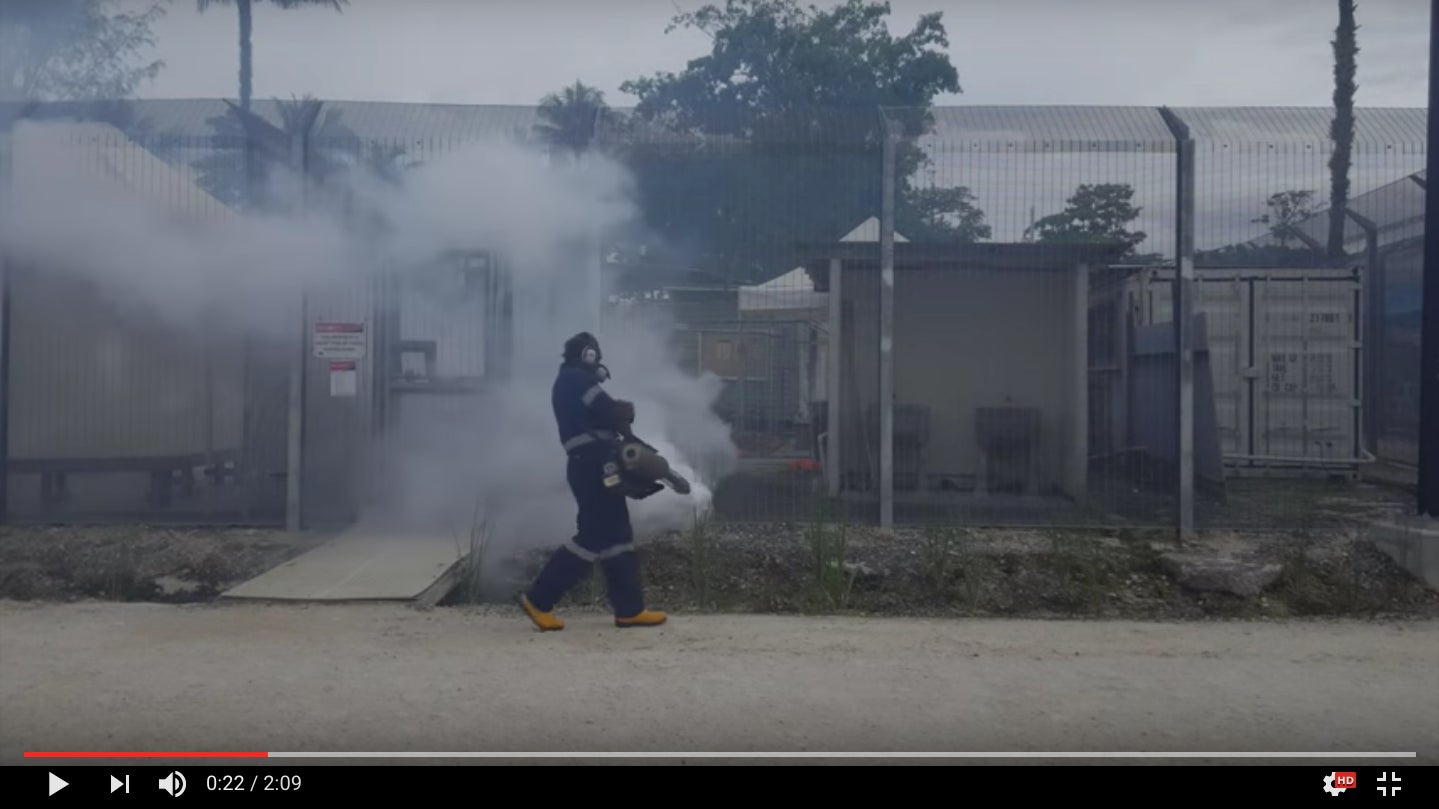A contraband cellphone film shows life inside Australia’s remote refugee-detention center
Behrouz Boochani, an Iranian writer, found words were too weak to describe the stifling existence at Australia’s Manus Island detention center, where he and hundreds of other refugees have been held for years.


Behrouz Boochani, an Iranian writer, found words were too weak to describe the stifling existence at Australia’s Manus Island detention center, where he and hundreds of other refugees have been held for years.
So he made a film. He shot “Chauka, Please Tell Us the Time” secretly with a cell phone, and is now promoting it from his confinement.
“I found that the journalism language is not enough powerful to tell the suffering and tell the history of this prison and what the Australian government is doing,” he told Australian radio network SBS.
Here’s the trailer, which shows desolate scenes behind bars:
The Manus center is one of two in Papua New Guinea where Australia redirected asylum seekers who arrived by sea. The practice has been condemned within and outside Australia, including by Papua New Guinea’s supreme court. The island nation and Australia have agreed to close the Manus center by October, but Australian officials have said they will not take in a single refugee.
Some of them could end up in the US under an agreement struck by the Obama administration. Although president Donald Trump originally reneged on it in an infamous call with Australian prime minister, he later agreed to stand by the commitment. But the US only agreed to consider the refugees cases, so it’s unclear how many it might ultimately resettle.
Life at the Manus center is full of hardships and indignities that have led nearly all of its detainees to suffer from depressive disorders. But among them, perhaps the most stinging is not knowing how long their internment will stretch.
More than two years after his arrival, in late 2013, Boochani wrote in a piece published by The Guardian:
The main policy here on Manus is to put asylum seekers in a time tunnel. In other words, none of the asylum seekers are aware of the stage of their own application and others’. They have no idea about the period of time they would be kept in the detention and what future is waiting for them.
The title of the film makes reference to that limbo. The Chauka is a native bird that sings at specific times of the day. It’s also the name given to the room where prisoners are sent for bouts of solitary confinement.
The movie, which Boochani co-produced with director Arash Kamali Sarvestani, a fellow Iranian based in the Netherlands, “is calling for justice,” he said during the interview.
“These people are human,” he said. “They didn’t do any crime, and you put them in this prison.”